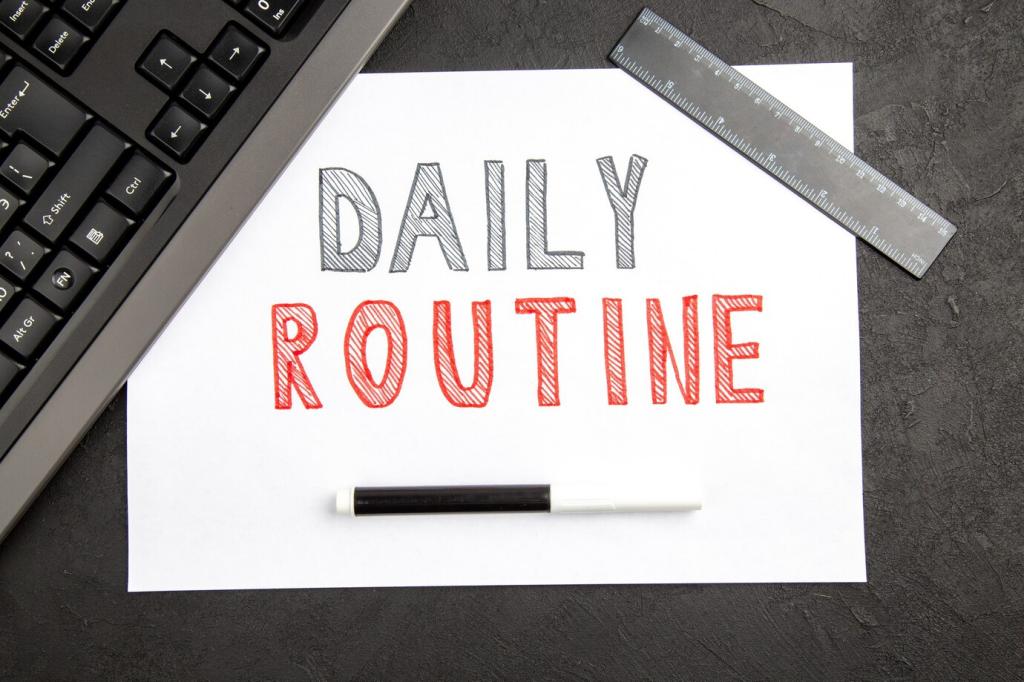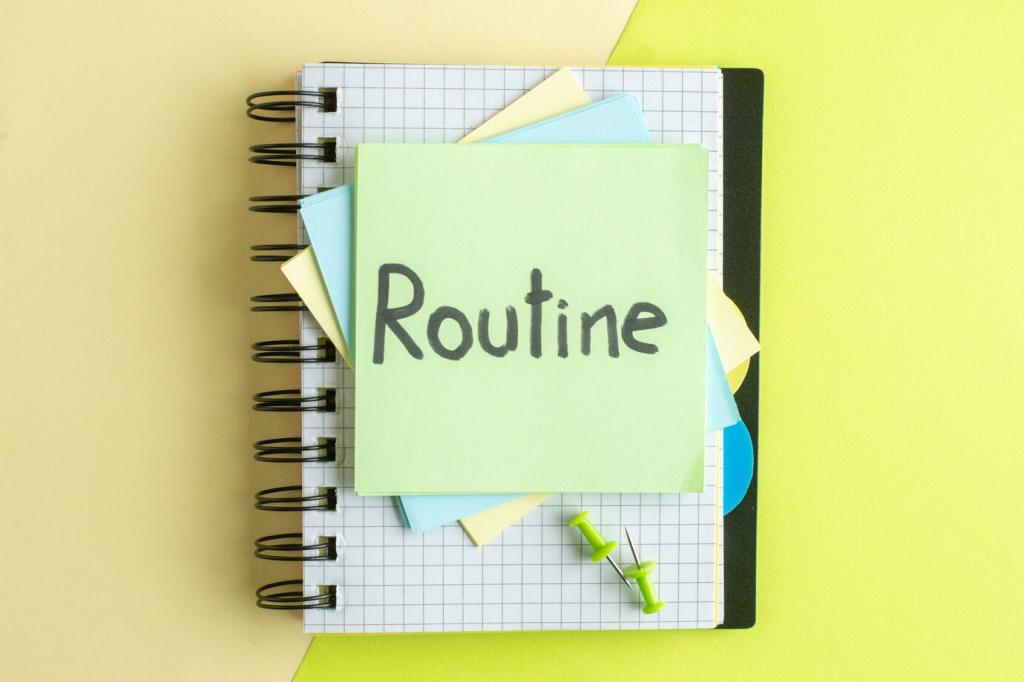Effective Methods for Establishing Positive Habits
Theme: Effective Methods for Establishing Positive Habits. Build reliable routines that feel natural, not forced. Explore practical strategies, real stories, and science-backed methods to help your best intentions stick. Share your experiences in the comments and subscribe for weekly habit-building insights and gentle accountability.


The Cue–Routine–Reward Loop Explained
Every positive habit relies on a trigger, an action, and a satisfying payoff. Optimizing these three parts makes change sustainable. Identify a reliable cue, simplify the routine, and select a rewarding finish. Tell us your favorite reliable cue in the comments to inspire others starting today.

Neuroplasticity and Identity Alignment
Your brain wires itself around repeated actions, especially those consistent with how you see yourself. Small, daily repetitions whisper new stories to your identity. Choose habits that align with values, not trends. Subscribe for weekly prompts that help reshape identity through gentle, repeatable practices.

Myths That Quietly Sabotage Consistency
You do not need perfect motivation, massive willpower, or big blocks of time to establish positive habits. Consistency beats intensity. Start where you are, with what you have, for a short, realistic duration. Share a myth you once believed, and how you overcame it, to encourage fellow readers.
Designing Cues and Environments That Support Good Choices
Place your running shoes by the door, keep a water bottle on your desk, and set your journal on your pillow. Visual defaults become silent coaches. One reader, Maya, began reading nightly after placing her book on the pillow each morning. Comment with your next environment reset today.
Designing Cues and Environments That Support Good Choices
Decide the exact when, where, and how beforehand: “After breakfast, at the kitchen table, I will write three gratitude lines.” Such clarity reduces hesitation and decision fatigue. Try crafting one implementation intention now, post it below for accountability, and invite a friend to join you.


Start Small, Then Scale with Confidence

The Two-Minute Rule in Real Life
Make the habit so short it feels almost silly: read one page, walk to the mailbox, prepare one vegetable. Momentum is the real win. After two minutes, stopping is allowed. Ironically, you will often continue. Comment with your two-minute version to inspire a newcomer who needs permission to start.

Tiny Wins Journal for Visible Progress
Record one tiny win daily to reinforce your positive habits. Seeing evidence compounds motivation and anchors identity. Even checking a single box proves you showed up. Join the newsletter for a simple template, and share three wins this week to celebrate progress with our supportive community.

Gradual Overload, Not Sudden Leaps
Increase difficulty slowly: add a minute, a rep, or a paragraph. Sustainable progression respects energy and capacity. When effort rises gently, resistance stays quiet. Post your planned micro-increase for next week, and revisit to report results. Consistent, small steps beat heroic bursts every time.
Motivation, Momentum, and Identity in Harmony
Say, “I am a person who moves daily,” instead of, “I need to exercise more.” Identity statements guide choices when motivation dips. One reader shifted to “I am a mindful eater” and stopped late-night snacking. Share your identity statement and subscribe for prompts that keep it alive.
Motivation, Momentum, and Identity in Harmony
Streak tracking creates visible momentum, while accountability partners add supportive pressure. Celebrate continuity, not perfection. If a streak breaks, restart without drama. Invite a friend in the comments to be your partner, and we will send a simple accountability checklist to newsletter subscribers this Friday.
Motivation, Momentum, and Identity in Harmony
Choose rewards that reinforce your values: a relaxing walk after writing, a favorite playlist during cleanup, or a quiet tea after meditating. Avoid rewards that conflict with goals. Comment with one meaningful, healthy reward that fits your new identity, then try it tonight and report back tomorrow.
Navigating Setbacks with Skill and Self-Compassion
Write specific contingencies: “If I miss my morning walk, then I will take a ten-minute evening loop.” Having a clear fallback turns detours into delays, not derailments. Share your favorite recovery plan below, and revisit next week to tell the community how it helped maintain your positive habits.


Navigating Setbacks with Skill and Self-Compassion
Define the absolute smallest version that still counts: one push-up, one sentence, one minute of meditation. This keeps the chain unbroken and identity intact. Subscribe for a mini checklist you can print, and comment with your minimum viable habit so others can borrow your creative simplification.
Tracking, Reflecting, and Iterating for Lasting Change
Reserve fifteen minutes to review your data, energy levels, and emotional tone. Decide one thing to keep, one to change, one to drop. This rhythm compounds clarity. Tell us your chosen tweak for next week, and subscribe to receive a guided retrospective checklist every Sunday morning.
Tracking, Reflecting, and Iterating for Lasting Change
Track inputs you control, not just outcomes: minutes practiced, sessions completed, or meals prepared. Input metrics encourage action and reduce discouragement. Outcomes follow. Comment with one input metric you will track for your positive habits, and invite a friend to keep you kindly accountable.

